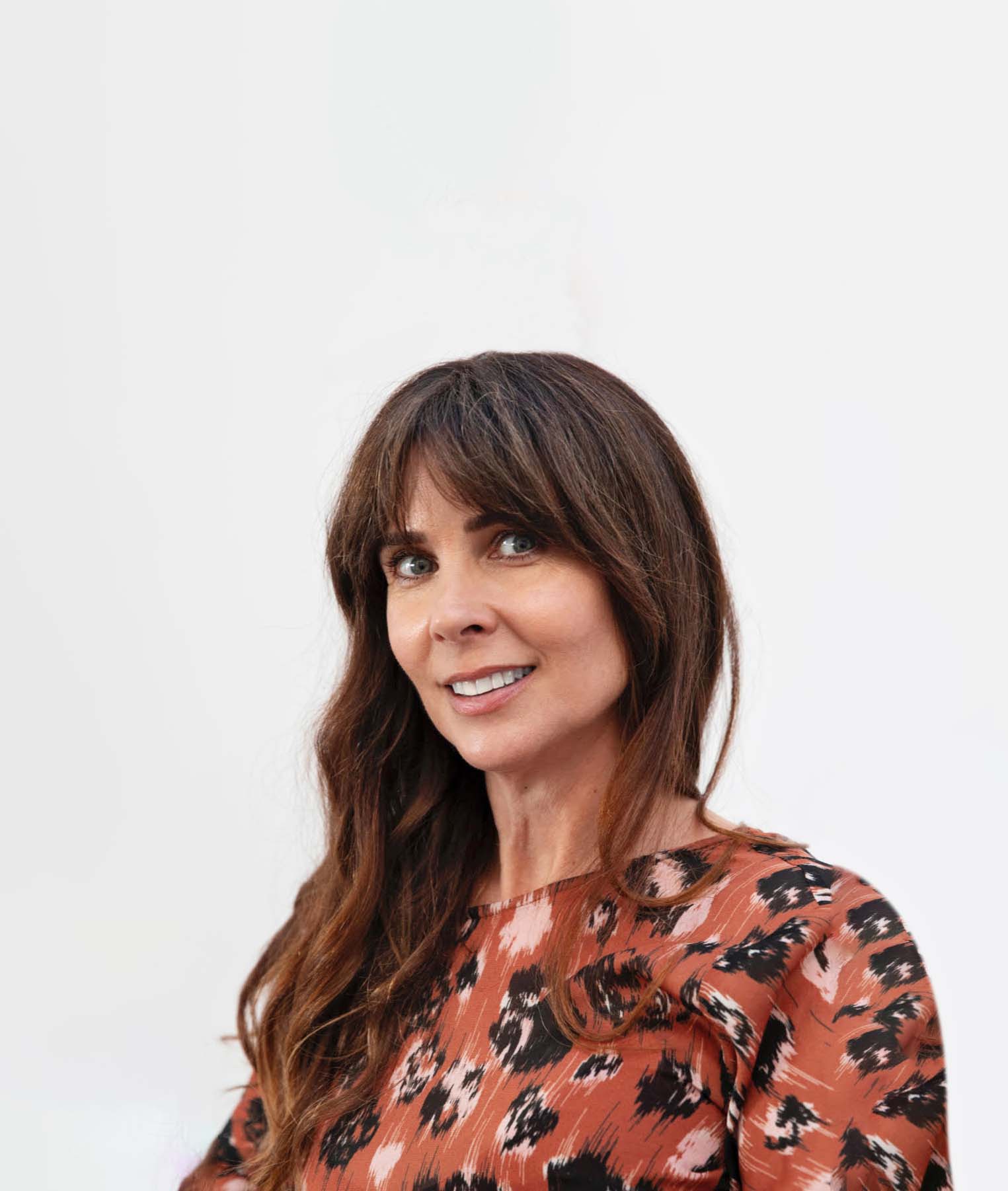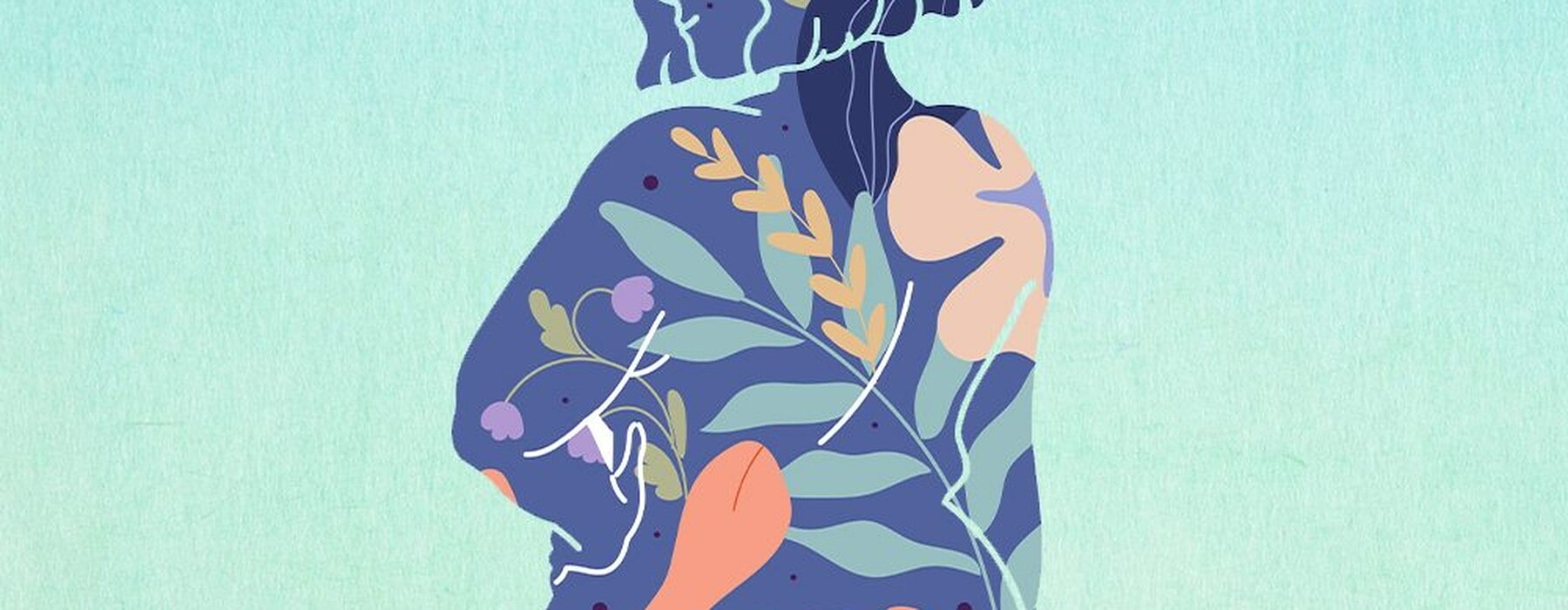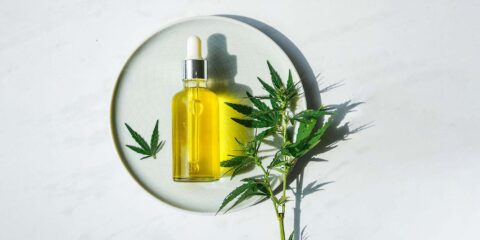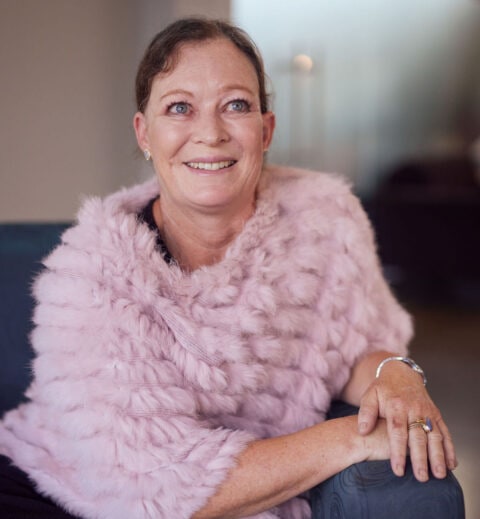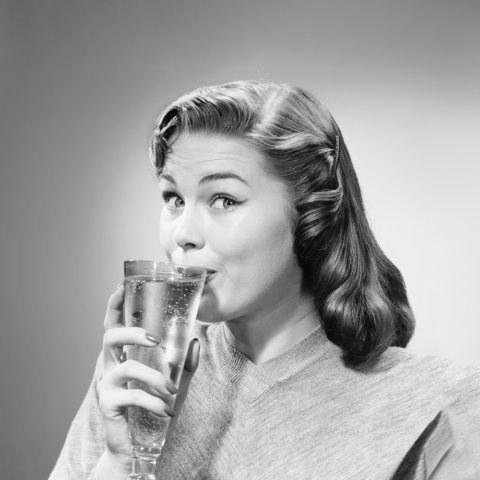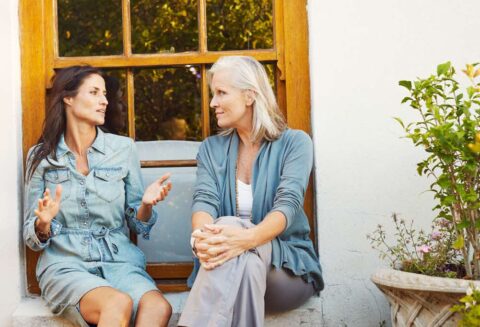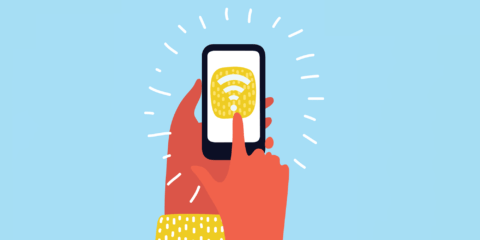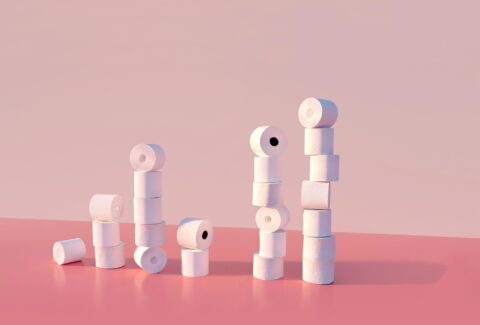Breast cancer and ageing have complicated Rebecca Wadey’s feelings about her body, and she shares her honest and deeply personal call to action on diet culture and existing in a world designed to make us feel less than perfect.
I’ve always considered myself to have a reasonable relationship with my body, and yet, paradoxically, my body is something I think about often. I never hated my body, but I never loved it either. It was merely a vessel.
As a teenager I was of course aware that my skinnier friends got the bulk of attention from guys. But that didn’t bother me; it was somehow obvious that those boys weren’t worthy of my time. In my twenties, working in the fashion industry, I knew if I was thinner I would have more wardrobe options, and that was appealing. But not as much as French fries and cask wine.
I just kind of… was. I lived without any sense of pride or the envy of others. And yet no self-loathing or angst either.
Actually, I did have one moment of body love; I distinctly remember making a comment to someone that I thought I had really good boobs and it would be just my luck to lose them. So when I was diagnosed with breast cancer at the age of 26, one of my first thoughts was “typical”. Upon telling my lovely boyfriend the news (we had been dating for six weeks), and trying to find a silver lining, I said, optimistically, “Oh well at least I will lose weight.”
“You don’t lose weight when you get cancer,” he replied. “You lose weight when you’re dying of it.” This comment is forever seared in my memory.
Two years later, bulked up on the hormone treatment necessary to induce menopause, I called in to take a meal to my dear friend Fleur who had been diagnosed at the same time as me. Her cancer had spread to her spine and liver.
She stood up upon seeing me, this beautiful strong woman, and her Citizens of Humanity denim miniskirt fell straight to the floor. I pretended not to notice, her humiliation too much on top of what she was already enduring.
By the time she died a couple of months later, she was a size no one would covet. Soon after her death I was told I had secondary cancer on my ovaries. Luckily that wasn’t the case; somehow my 28-year-old menopausal body had found the time, the energy and the means for endometriosis. I stopped the meds and soon after, to everyone’s surprise, became pregnant.
Halfway through the pregnancy, I lost another friend. Secondary breast cancer, in the lungs. I was distraught. And claustrophobic in my body.
Then, at 35 weeks pregnant, a routine check-up showed blood test results so dramatic it looked as if I should be dead, or at least about to head that way. Unable to run further tests due to the pregnancy, I was told to go away and enjoy my time with my child.
After my son was born, I shunned the doctors; unconvinced I was dying, I was determined to carry on as normal. I quite consciously saw my weight as a sign of a healthy existence and while I walked my baby buggy all across town (including up steep hills, taunting my lungs, desperate to prove their prowess), I ate all the pies, milkshakes and muffins I could, flaunting my functioning organs as proof of life.
My poor singular boob failed both my newborn and I miserably. Everything went wrong and my milk supply was meagre.
“Eat more,” shrilled the lactation consultants. I dutifully obeyed. Eventually the outrageous test results proved to be a medical anomaly wrought by hormonal changes in my stubbornly unusual body. But mental scars remained.
From that point on I clung to the meat on my bones like the toughest ribs in town, refusing to let them ease even a little. Weight gain equalled health. Weight loss represented something sinister.
It’s a balance I’m still trying to navigate. My main goal, as a mother of two sons aged 11 and 13, is to discuss bodies in a way that’s about health, not aesthetics. I make no attempts to hide my cellulite, saggy belly and mismatched boobs.
I feel a desperate urge to counter the very filtered lenses through which they see women on TikTok and Snapchat and show them a world free of fear and shame.
I choose to love swimming in the ocean without worrying about how my butt looks in a swimsuit. I choose to not pass comment or judgement on any photos taken of myself, or use filters. I (mostly) choose food and exercise that fuels my mental wellbeing, not a hot body. Like Lizzo, I love fried chicken burgers and juice cleanses. I choose joy. Surely that is at the crux of true wellbeing.
Having meat on your bones is one of the greatest privileges there is.
The great unlearning
And yet… we live in a capitalist construct where diet culture has been indelibly normalised. I, like many, have been involved in the great unlearning of the past year. This unlearning and a steadfast belief that women have been done a criminal disservice by the media has driven me to question, prod and yank open everything I know about myself and my relationship with the parts of me society deems public property.
As I dig deep into the recesses of time, I realise that I’ve participated in this culture. I’ve eaten (or sometimes not eaten), and worked out in an attempt to look a certain way.
I follow fashion trends, use expensive face serums and dye my coarse grey hair a glossy rich shade of auburn. While I’ve never taken up much physical space in society (my opinions span much further), I’ve certainly been made to feel I have at times.
A flatmate in Melbourne once told me I would never amount to anything as employers would take one look at my size and see I have no discipline.
The night before my wedding I went for dinner with a dear group of female friends who removed the skin from their teriyaki chicken before eating.
I’m sure they’ve long forgotten that incident, 14 years ago. But I remain scarred from feeling like the chubby friend chowing down on chicken skin the night before her wedding.
That’s on me – I have a degree in Women’s Studies and intimate knowledge of feminist theories, yet I’m not immune to paranoia about how the world perceives me.
My eyes were slowly opened to the insidiousness of diet culture creeping into every aspect of our being when I worked as a wellbeing editor. This was just as wellness culture was morphing into the new politically correct “bikini body” by sneaky capitalists who saw us turning away, so quickly jumped aboard a Trojan horse.
We’re worn out
The thing is, we are tired. We’re tired because our health issues are inadequately researched, poorly funded and largely ignored. We’re tired because we have to work nearly 10 percent more than men to receive pay parity with them, all while taking on the majority of the emotional labour involved in running a household.
We’re tired because capitalist culture tells us we need to buy new clothes each season, that we need make-up, an arsenal of skincare products, Botox, fillers, artfully designed eyebrows, carefully coiffed hair, manicures, pedicures, lasers and hair removal in order to conform to their wildly unrealistic expectations of “beauty”. Our fear we will fall short of the mark is their primary objective.
We’re tired because we’ve been taught since childhood to anguish over every morsel that goes into our mouths and equate eating, a pleasurable activity, with the exhausting emotion of guilt. (“I shouldn’t,” my strong feminist mother has said every time she’s ever reached for second helpings.)
We’re tired because in between cutting carbs and fasting, we are running, doing CrossFit, bootcamp and barre, mostly because we’ve been conditioned to work out in order to achieve an impossible end result of a rounded, high butt with a much smaller waist.
We’re tired, because none of this is sustainable; many of us are post-partum or struggling with fertility or menopause on top of it all, yet instead of finding solid medical solutions to those problems we’re made to feel terrified of the internal and external signs of ageing and sold the promise of help via supplements, lifestyle programmes and life coaches.
And now we are drowning on the capitalist hamster wheel of never being good enough, pretty enough, thin enough, or young enough. And we can’t get off because no one is willing to help us. Certainly not most women’s media; they’re heavily invested in keeping you on that wheel.
It’s tricky territory, writing about the complex and deeply personal relationship I have with my body post-cancer and as I age. These days I’m more inclined to think it’s grotesque to have any discussions around bodies. I also don’t want to centre myself in a space where many people have horrific lived experiences far greater than micro-aggressions from peers.
But my heart breaks when I consider the hideous messaging that we are constantly under. We need an uprising more than silence.
Where to get help
This piece comes from a place of compassion for the pressure we are all under in today’s world and is not intended to replace professional advice. If you would like to speak with an expert about anything you are struggling with relating to body image, you should consult your GP, or you can confidentially contact the Mental Health Foundation, or free call or text 1737 any time for support from a trained counsellor.
